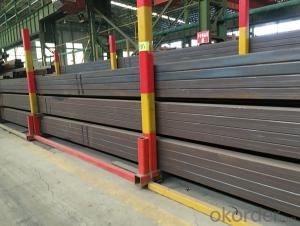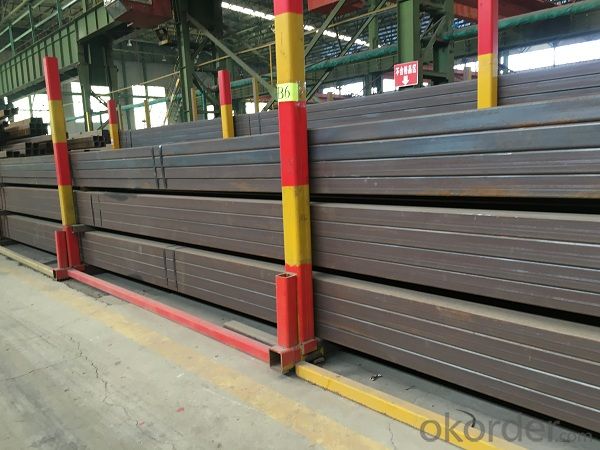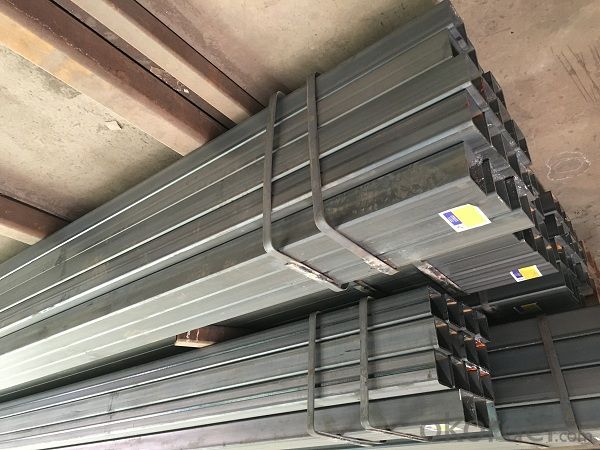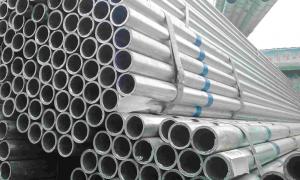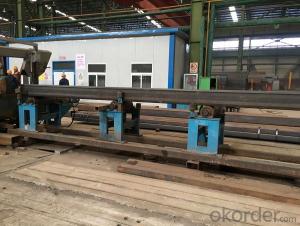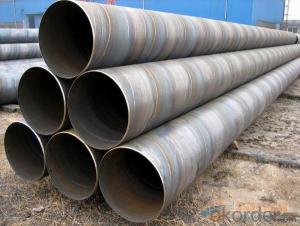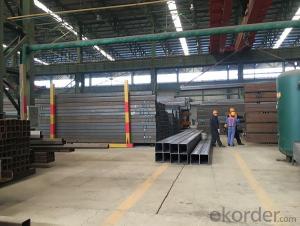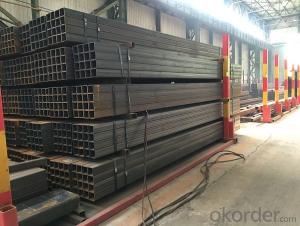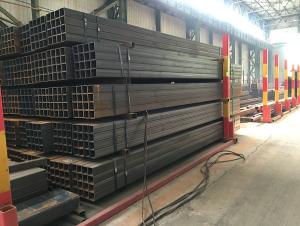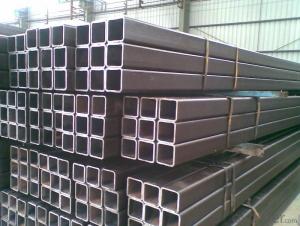Welding square rectangular pipe for many varieties of construction
- Loading Port:
- Tianjin
- Payment Terms:
- TT OR LC
- Min Order Qty:
- 26 m.t.
- Supply Capability:
- 15000 m.t./month
OKorder Service Pledge
OKorder Financial Service
You Might Also Like
Specification
1、 Welding square rectangular pipe for many varieties of construction
Square tube, square tube is a kind of call and rectangular tube, is equal and not equal to the length of steel pipe. Is the strip through the process of processing roll system. In general is the strip through the demolition of the package, flat, curly, welded to form a circular tube, and then rolled into a square tube and then cut into a square tube and then cut into the required length.
2、 Welding square rectangular pipe for many varieties of construction
• High manufacturing accuracy
• High strength
• Small inertia resistance
• Strong heat dissipation ability
• Good visual effect
• Reasonable price
3、 Welding square rectangular pipe for many varieties of construction
Standard | GB, DIN, ASTM |
Grade | 10#-45#, 16Mn 10#, 20#, 45#, 16Mn |
Thickness | 1.5 - 25 mm |
Section Shape | Square and rectangular |
Outer Diameter | 20*20 mm-------400*400mm 20*30mm*300*500mm |
Place of Origin | Tianjin, China (Mainland) |
Length | 3-12M |
Outer Diameter | 20*20 mm-------400*400mm 20*30mm*300*500mm |
Grade | 235B 345B |
Standard | ASME, ASTM |
1) Material:(ASTM A 106/A53 GRB.API5LGRB,GB,235B,345B
2) Specification range:OD: 20*30mm----300*500mm 20*20 mm---400*400mm ,WT: 1.5 - 25 mm ,length:3-12m or according to the requirement of clients.
3) Excutive standards:GB,ASME API5L.ASTM A 106/A53,Despite of the above
4) Surface:black lacquered,varnish coating or galvanized.
5) Ends:Beveled or square cut ,painted.
6) Packing:bundles wrapped with strong steel strip,seaworthy packing.
4、Packaging & Delivery
Packaging Details: | seaworthy package,bundles wrapped with strong steel strip |
Delivery Detail: | 15-30days after received 30%TT |
5、 Welding square rectangular pipe for many varieties of construction
①How is the quality of your products?
Our products are manufactured strictly according to national and internaional standard, and we take a test
on every pipe before delivered out. If you want see our quality certifications and all kinds of testing report, please just ask us for it.
Guaranteed: If products’ quality don’t accord to discription as we give or the promise before you place order, we promise 100% refund.
②How about price?
Yes, we are factory and be able to give you lowest price below market one, and we have a policy that “ for saving time and absolutely honest business attitude, we quote as lowest as possible for any customer, and discount can be given according to quantity”,if you like bargain and factory price is not low enough as you think, just don’t waste your time.Please trust the quotation we would give you, it is professional one.
③Why should you chose us?
Chose happens because of quality, then price, We can give you both.Additionally, we can also offer professional products inquiry, products knowledge train(for agents), smooth goods delivery, exellent customer solution proposals.Our service formula: good quality+good price+good service=customer’s trust
SGS test is available, customer inspection before shipping is welcome, third party inspection is no problem.
6、 Welding square rectangular pipe for many varieties of construction
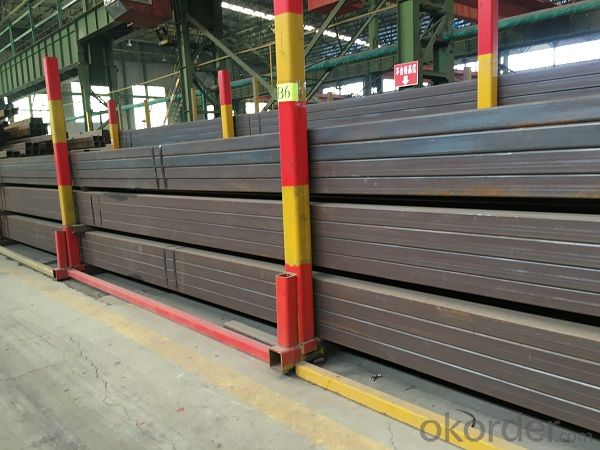
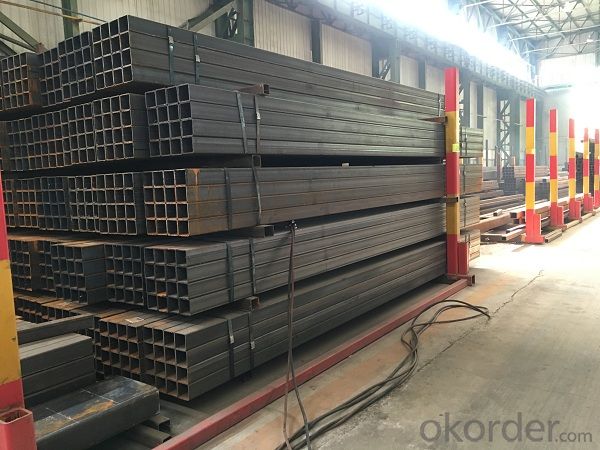
- Q: What is the difference between API 5L and ASTM A53 steel pipes?
- API 5L and ASTM A53 are widely utilized carbon steel pipe standards with similar purposes but notable distinctions. 1. In terms of scope, API 5L pertains to seamless and welded pipes for transporting oil, gas, water, and other fluids. It encompasses plain-end, threaded-end, and belled-end pipe types. Conversely, ASTM A53 is a standard specification for seamless and welded black and hot-dipped galvanized steel pipes utilized in mechanical and pressure applications. 2. The manufacturing processes differ, as API 5L pipes undergo hot-rolling, while ASTM A53 pipes undergo either hot-rolling or cold-drawing. This variance affects the chemical composition and mechanical properties of the pipes. 3. Generally, API 5L pipes have a higher carbon content compared to ASTM A53 pipes. This discrepancy arises from the intended use of API 5L pipes for conveying oil, gas, and water, necessitating greater strength and durability. On the other hand, ASTM A53 pipes cater to mechanical and pressure applications, where lower carbon content is deemed appropriate. 4. API 5L pipes exhibit higher minimum yield strength and tensile strength than ASTM A53 pipes. This outcome stems from the increased carbon content and more stringent manufacturing process employed for API 5L pipes. Conversely, ASTM A53 pipes possess lower yield and tensile strength requirements, rendering them more suitable for general-purpose applications. 5. API 5L pipes offer various coating options, including black varnish, 3PE, FBE, among others, depending on the specific application requirements. In contrast, ASTM A53 pipes are typically hot-dipped galvanized to enhance corrosion resistance. In conclusion, API 5L and ASTM A53 steel pipes differ in scope, manufacturing processes, chemical compositions, mechanical properties, and coating options. The appropriate choice of pipe hinges upon specific application requirements, such as the nature of the conveyed fluid, operating conditions, and desired strength and durability.
- Q: Can steel pipes be used for oil drilling operations?
- Yes, steel pipes are commonly used for oil drilling operations. They possess the necessary strength and durability to withstand the harsh conditions of drilling and transporting oil. Additionally, steel pipes have excellent corrosion resistance, making them suitable for long-term use in the oil and gas industry.
- Q: What is the weight and strength of steel pipes?
- The weight and strength of steel pipes differ based on their dimensions and the specific steel grade utilized. Typically, the weight of steel pipes is measured in pounds per foot or kilograms per meter. The strength of steel pipes is commonly evaluated in terms of yield strength and ultimate tensile strength. The weight of steel pipes can range from a few pounds per foot for smaller sizes to several hundred pounds per foot for larger diameters and thicker walls. Various factors, including the pipe's outer diameter, wall thickness, and length, impact the weight. For example, a 1-inch diameter steel pipe with a wall thickness of 0.125 inches may weigh approximately 0.67 pounds per foot. Conversely, a 12-inch diameter steel pipe with a wall thickness of 0.5 inches can weigh roughly 142 pounds per foot. The strength of steel pipes is determined by the grade of steel used, which can vary depending on the specific application and requirements. Commonly used steel grades for pipes include ASTM A53 for general purposes, ASTM A106 for high-temperature service, and API 5L for oil and gas transportation. These grades possess different yield strengths and ultimate tensile strengths. Yield strength denotes the amount of stress a steel pipe can endure before it starts to deform plastically. It is usually measured in pounds per square inch (psi) or megapascals (MPa). For instance, ASTM A53 Grade B steel pipe has a minimum yield strength of 35,000 psi (240 MPa), while API 5L Grade X65 steel pipe has a minimum yield strength of 65,000 psi (448 MPa). On the other hand, ultimate tensile strength signifies the maximum stress a steel pipe can withstand before fracturing. It is also measured in psi or MPa. For example, ASTM A106 Grade B steel pipe has an ultimate tensile strength of 60,000 psi (415 MPa), whereas API 5L Grade X65 steel pipe has an ultimate tensile strength of 77,000 psi (531 MPa). In conclusion, the weight and strength of steel pipes can vary based on their dimensions and the grade of steel used. The weight is influenced by factors like the pipe's diameter, wall thickness, and length, while the strength is determined by the steel's yield strength and ultimate tensile strength.
- Q: How are steel pipes used in the construction of natural gas power plants?
- Steel pipes are used in the construction of natural gas power plants for various purposes such as transporting natural gas from the source to the plant, distributing gas within the facility, and carrying exhaust gases away from the plant. They are essential for maintaining a safe and efficient flow of natural gas throughout the power plant's infrastructure.
- Q: Can steel pipes be used for shipbuilding?
- Yes, steel pipes can be used for shipbuilding. Steel is a commonly used material in the construction of ships due to its strength, durability, and resistance to corrosion. Steel pipes are used for various purposes in shipbuilding, including the construction of the ship's hull, superstructure, and various internal systems such as plumbing, ventilation, and fuel lines. The strength and structural integrity of steel pipes make them suitable for withstanding the harsh conditions at sea, such as high pressures, extreme temperatures, and exposure to saltwater. Additionally, steel pipes can be easily welded and shaped to meet the specific requirements of shipbuilding, making them a versatile choice for this industry.
- Q: How do you protect steel pipes from rusting?
- To protect steel pipes from rusting, several methods can be employed. One common approach is to apply a protective coating to the pipes. This can be done by using paint or other types of protective coatings designed specifically for metal surfaces. The coating acts as a barrier between the steel and the elements, preventing moisture and oxygen from coming into contact with the metal and causing rust. Another method is to galvanize the steel pipes. Galvanizing involves coating the pipes with a layer of zinc, which creates a protective barrier that prevents rust from forming. This process is commonly used for outdoor applications or in environments where the pipes are exposed to moisture. Regular maintenance is also crucial in protecting steel pipes from rusting. This includes inspecting the pipes for any signs of corrosion or damage and promptly addressing any issues that are found. Additionally, keeping the pipes clean and dry can help prevent rust formation. In some cases, installing sacrificial anodes can provide additional protection against rust. Sacrificial anodes are made of a more reactive metal, such as zinc or magnesium, and are attached to the steel pipes. These anodes corrode instead of the steel, sacrificing themselves to protect the pipes from rust. Lastly, proper storage and handling of steel pipes is essential. This means storing them in a dry, well-ventilated area, away from moisture and humidity. It is also important to handle the pipes with care to avoid any scratches or damage to the protective coatings. By employing these methods and practices, steel pipes can be effectively protected from rusting, ensuring their longevity and durability.
- Q: How do steel pipes withstand high pressure and temperature?
- Steel pipes are designed to withstand high pressure and temperature due to their inherent strength and durability. The composition of steel, with its high tensile strength and resistance to deformation, allows it to maintain its structural integrity even under extreme conditions. Additionally, steel pipes are often manufactured with thicker walls and reinforcement techniques to further enhance their ability to withstand pressure and temperature.
- Q: What are the different types of steel pipe bends?
- There are three main types of steel pipe bends: 90-degree bends, 45-degree bends, and 180-degree bends. These bends are commonly used in piping systems to redirect the flow of fluids or gases in a desired direction.
- Q: How are steel pipes used in the manufacturing of food processing equipment?
- Steel pipes are commonly used in the manufacturing of food processing equipment due to their durability, strength, and resistance to corrosion. These pipes are used to transport various food products such as liquids, powders, and gases within the equipment. They are also utilized in the construction of frames, supports, and structures for food processing machinery, ensuring stability and longevity. Additionally, steel pipes are often employed in the creation of heat exchangers, which are crucial for heating or cooling purposes in food processing equipment.
- Q: Can steel pipes be used for heat transfer applications?
- Yes, steel pipes can be used for heat transfer applications. Steel is a good conductor of heat, which makes it an excellent choice for transferring thermal energy from one place to another. Steel pipes are commonly used in various heat transfer systems such as heating, ventilation, and air conditioning (HVAC) systems, industrial process heating, and steam distribution networks. The high thermal conductivity of steel allows for efficient heat transfer, ensuring that heat is effectively transported and distributed throughout the system. Additionally, steel pipes have good strength and durability, making them suitable for withstanding high temperatures and pressures often encountered in heat transfer applications. Overall, steel pipes are a reliable and widely used solution for heat transfer purposes.
Send your message to us
Welding square rectangular pipe for many varieties of construction
- Loading Port:
- Tianjin
- Payment Terms:
- TT OR LC
- Min Order Qty:
- 26 m.t.
- Supply Capability:
- 15000 m.t./month
OKorder Service Pledge
OKorder Financial Service
Similar products
Hot products
Hot Searches
Related keywords
